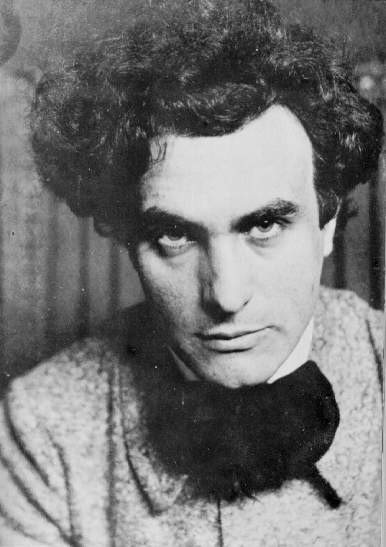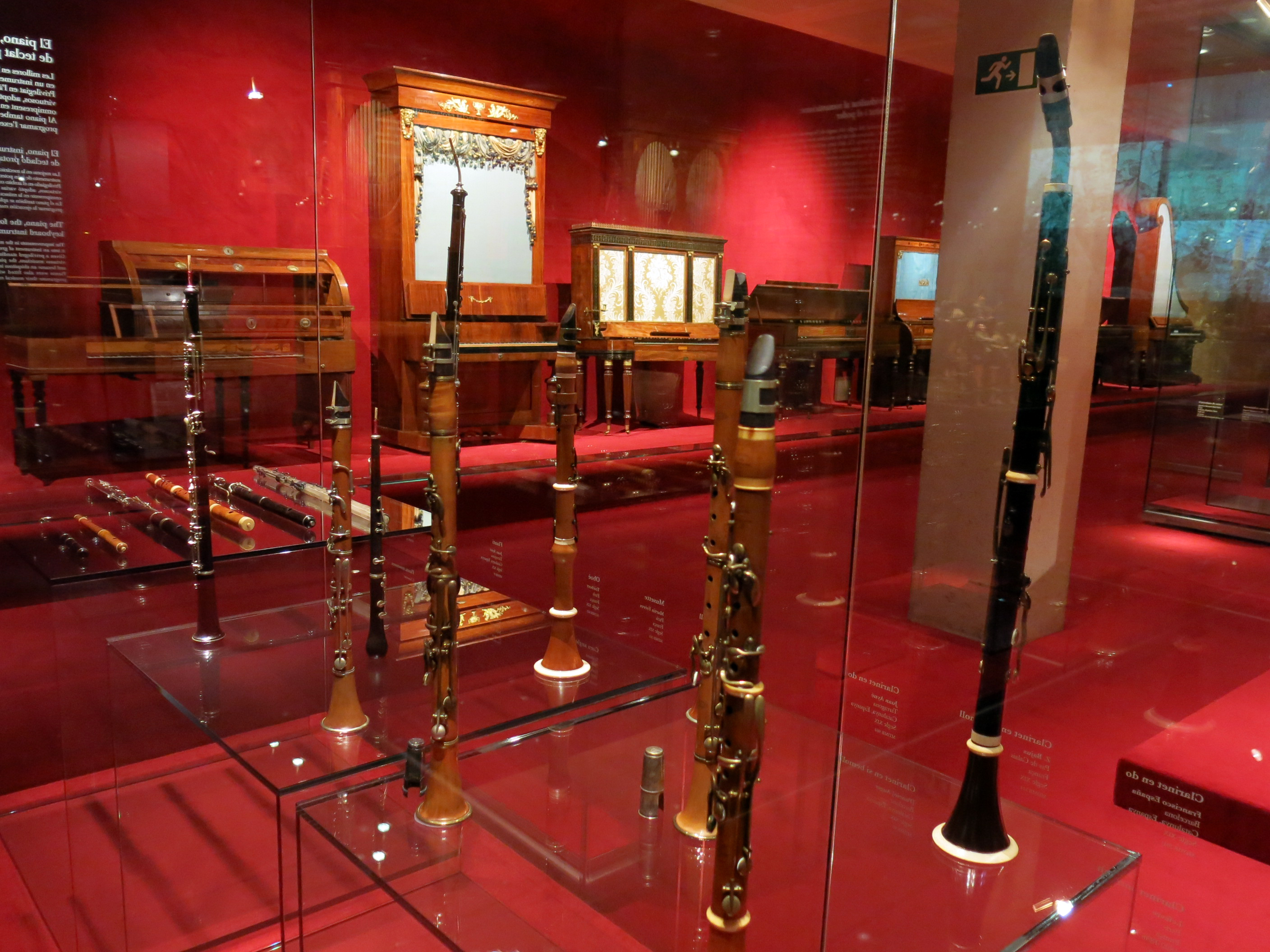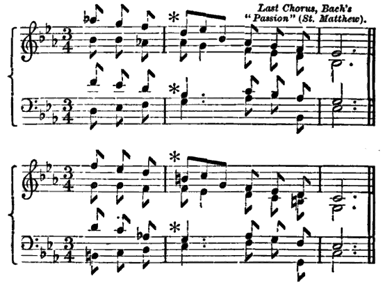|
Amériques
''Amériques'' is an orchestral composition by Edgard Varèse, scored for a very large, romantic orchestra with additional percussion (for eleven performers) including sirens. Written between 1918 and 1921 and revised in 1927, it was the first work Varèse composed after he moved to the United States. Although it was not his first work, he destroyed many of his earlier pieces, effectively making ''Amériques'' his opus one (although he never used that designation). Performances The original version of ''Amériques'' was premiered on 9 April 1926 by the Philadelphia Orchestra under Leopold Stokowski. The revised version was premiered on 30 May 1929 by the Orchestre des Concerts Poulet under Gaston Poulet at the Maison Gaveau. It was first recorded in 1966 by the Utah Symphony Orchestra and Maurice Abravanel. In recent years, it has emerged as a popular modernist showpiece in the orchestral repertoire, with recordings by Pierre Boulez, Christoph von Dohnanyi, Riccardo Chailly and M ... [...More Info...] [...Related Items...] OR: [Wikipedia] [Google] [Baidu] |
Edgard Varèse
Edgard Victor Achille Charles Varèse (; also spelled Edgar; December 22, 1883 – November 6, 1965) was a French-born composer who spent the greater part of his career in the United States. Varèse's music emphasizes timbre and rhythm; he coined the term " organized sound" in reference to his own musical aesthetic. Varèse's conception of music reflected his vision of "sound as living matter" and of "musical space as open rather than bounded". He conceived the elements of his music in terms of " sound-masses", likening their organization to the natural phenomenon of crystallization. Varèse thought that "to stubbornly conditioned ears, anything new in music has always been called noise", and he posed the question, "what is music but organized noises?" Although his complete surviving works only last about three hours, he has been recognised as an influence by several major composers of the late 20th century. Varèse saw potential in using electronic media for sound production, and ... [...More Info...] [...Related Items...] OR: [Wikipedia] [Google] [Baidu] |
The Rite Of Spring
''The Rite of Spring''. Full name: ''The Rite of Spring: Pictures from Pagan Russia in Two Parts'' (french: Le Sacre du printemps: tableaux de la Russie païenne en deux parties) (french: Le Sacre du printemps, link=no) is a ballet and orchestral concert work by the Russian composer Igor Stravinsky. It was written for the 1913 Paris season of Sergei Diaghilev's Ballets Russes company; the original choreography was by Vaslav Nijinsky with stage designs and costumes by Nicholas Roerich. When first performed at the Théâtre des Champs-Élysées on 29 May 1913, the avant-garde nature of the music and choreography List of classical music concerts with an unruly audience response, caused a sensation. Many have called the first-night reaction a "riot" or "near-riot", though this wording did not come about until reviews of later performances in 1924, over a decade later. Although designed as a work for the stage, with specific passages accompanying characters and action, the music achieved ... [...More Info...] [...Related Items...] OR: [Wikipedia] [Google] [Baidu] |
Siren (noisemaker)
A siren is a loud noise-making device. Civil defense sirens are mounted in fixed locations and used to warn of natural disasters or attacks. Sirens are used on emergency service vehicles such as ambulances, police cars, and fire engines. There are two general types: mechanical and electronic. Many fire sirens (used for calling the volunteer fire fighters) serve double duty as tornado or civil defense sirens, alerting an entire community of impending danger. Most fire sirens are either mounted on the roof of a fire station or on a pole next to the fire station. Fire sirens can also be mounted on or near government buildings, on tall structures such as water towers, as well as in systems where several sirens are distributed around a town for better sound coverage. Most fire sirens are single tone and mechanically driven by electric motors with a rotor attached to the shaft. Some newer sirens are electronically driven speakers. Fire sirens are often called "fire whistles", "fir ... [...More Info...] [...Related Items...] OR: [Wikipedia] [Google] [Baidu] |
Debussy
(Achille) Claude Debussy (; 22 August 1862 – 25 March 1918) was a French composer. He is sometimes seen as the first Impressionist composer, although he vigorously rejected the term. He was among the most influential composers of the late 19th and early 20th centuries. Born to a family of modest means and little cultural involvement, Debussy showed enough musical talent to be admitted at the age of ten to France's leading music college, the Conservatoire de Paris. He originally studied the piano, but found his vocation in innovative composition, despite the disapproval of the Conservatoire's conservative professors. He took many years to develop his mature style, and was nearly 40 when he achieved international fame in 1902 with the only opera he completed, '' Pelléas et Mélisande''. Debussy's orchestral works include ''Prélude à l'après-midi d'un faune'' (1894), ''Nocturnes'' (1897–1899) and ''Images'' (1905–1912). His music was to a considerable extent a r ... [...More Info...] [...Related Items...] OR: [Wikipedia] [Google] [Baidu] |
Piccolo
The piccolo ( ; Italian for 'small') is a half-size flute and a member of the woodwind family of musical instruments. Sometimes referred to as a "baby flute" the modern piccolo has similar fingerings as the standard transverse flute, but the sound it produces is an octave higher. This has given rise to the name ottavino (), by which the instrument is called in Italian and thus also in scores of Italian composers. Piccolos are often orchestrated to double the violins or the flutes, adding sparkle and brilliance to the overall sound because of the aforementioned one-octave transposition upwards. The piccolo is a standard member in orchestras, marching bands, and wind ensembles. History Since the Middle Ages, evidence indicates the use of octave transverse flutes as military instruments, as their penetrating sound was audible above battles. In cultured music, however, the first piccolos were used in some of Jean Philippe Rameau's works in the first half of the 18th century. Sti ... [...More Info...] [...Related Items...] OR: [Wikipedia] [Google] [Baidu] |
Woodwind Instrument
Woodwind instruments are a family of musical instruments within the greater category of wind instruments. Common examples include flute, clarinet, oboe, bassoon, and saxophone. There are two main types of woodwind instruments: flutes and Reed aerophones, reed instruments (otherwise called reed pipes). The main distinction between these instruments and other wind instruments is the way in which they produce sound. All woodwinds produce sound by splitting the air blown into them on a sharp edge, such as a reed (mouthpiece), reed or a fipple. Despite the name, a woodwind may be made of any material, not just wood. Common examples include brass, silver, cane, as well as other metals such as gold and platinum. The saxophone, for example, though made of brass, is considered a woodwind because it requires a reed to produce sound. Occasionally, woodwinds are made of earthen materials, especially ocarinas. Flutes Flutes produce sound by directing a focused stream of air below the edge ... [...More Info...] [...Related Items...] OR: [Wikipedia] [Google] [Baidu] |
Cambridge Companions To Music
The Cambridge Companions to Music form a book series published by Cambridge University Press Cambridge University Press is the university press of the University of Cambridge. Granted letters patent by Henry VIII of England, King Henry VIII in 1534, it is the oldest university press A university press is an academic publishing hou .... Each book is a collection of essays on the topic commissioned by the publisher. on Cambridge University Press website, accessed 21 September 2015. Volumes (sortable table) References External links ... [...More Info...] [...Related Items...] OR: [Wikipedia] [Google] [Baidu] |
Equal Temperament
An equal temperament is a musical temperament or tuning system, which approximates just intervals by dividing an octave (or other interval) into equal steps. This means the ratio of the frequencies of any adjacent pair of notes is the same, which gives an equal perceived step size as pitch is perceived roughly as the logarithm of frequency. In classical music and Western music in general, the most common tuning system since the 18th century has been twelve-tone equal temperament (also known as 12 equal temperament, 12-TET or 12-ET; informally abbreviated to twelve equal), which divides the octave into 12 parts, all of which are equal on a logarithmic scale, with a ratio equal to the 12th root of 2 ( ≈ 1.05946). That resulting smallest interval, the width of an octave, is called a semitone or half step. In Western countries the term ''equal temperament'', without qualification, generally means 12-TET. In modern times, 12-TET is usually tuned relative to a standard pitch of ... [...More Info...] [...Related Items...] OR: [Wikipedia] [Google] [Baidu] |
Pitch (music)
Pitch is a perceptual property of sounds that allows their ordering on a frequency-related scale, or more commonly, pitch is the quality that makes it possible to judge sounds as "higher" and "lower" in the sense associated with musical melodies. Pitch is a major auditory attribute of musical tones, along with duration, loudness, and timbre. Pitch may be quantified as a frequency, but pitch is not a purely objective physical property; it is a subjective psychoacoustical attribute of sound. Historically, the study of pitch and pitch perception has been a central problem in psychoacoustics, and has been instrumental in forming and testing theories of sound representation, processing, and perception in the auditory system. Perception Pitch and frequency Pitch is an auditory sensation in which a listener assigns musical tones to relative positions on a musical scale based primarily on their perception of the frequency of vibration. Pitch is closely related to frequency, but ... [...More Info...] [...Related Items...] OR: [Wikipedia] [Google] [Baidu] |
New York City
New York, often called New York City or NYC, is the List of United States cities by population, most populous city in the United States. With a 2020 population of 8,804,190 distributed over , New York City is also the List of United States cities by population density, most densely populated major city in the United States, and is more than twice as populous as second-place Los Angeles. New York City lies at the southern tip of New York (state), New York State, and constitutes the geographical and demographic center of both the Northeast megalopolis and the New York metropolitan area, the largest metropolitan area in the world by urban area, urban landmass. With over 20.1 million people in its metropolitan statistical area and 23.5 million in its combined statistical area as of 2020, New York is one of the world's most populous Megacity, megacities, and over 58 million people live within of the city. New York City is a global city, global Culture of New ... [...More Info...] [...Related Items...] OR: [Wikipedia] [Google] [Baidu] |
Timbre
In music, timbre ( ), also known as tone color or tone quality (from psychoacoustics), is the perceived sound quality of a musical note, sound or musical tone, tone. Timbre distinguishes different types of sound production, such as choir voices and musical instruments. It also enables listeners to distinguish different instruments in the same category (e.g., an oboe and a clarinet, both Woodwind instrument, woodwind instruments). In simple terms, timbre is what makes a particular musical instrument or human voice have a different sound from another, even when they play or sing the same note. For instance, it is the difference in sound between a guitar and a piano playing the same note at the same volume. Both instruments can sound equally tuned in relation to each other as they play the same note, and while playing at the same amplitude level each instrument will still sound distinctively with its own unique tone color. Experienced musicians are able to distinguish between diff ... [...More Info...] [...Related Items...] OR: [Wikipedia] [Google] [Baidu] |
Texture (music)
In music, texture is how the tempo, melodic, and harmonic materials are combined in a musical composition, determining the overall quality of the sound in a piece. The texture is often described in regard to the density, or thickness, and range, or width, between lowest and highest pitches, in relative terms as well as more specifically distinguished according to the number of voices, or parts, and the relationship between these voices (see Common types below). For example, a thick texture contains many 'layers' of instruments. One of these layers could be a string section or another brass. The thickness also is changed by the amount and the richness of the instruments playing the piece. The thickness varies from light to thick. A piece's texture may be changed by the number and character of parts playing at once, the timbre of the instruments or voices playing these parts and the harmony, tempo, and rhythms used. The types categorized by number and relationship of parts are an ... [...More Info...] [...Related Items...] OR: [Wikipedia] [Google] [Baidu] |









.jpg)
